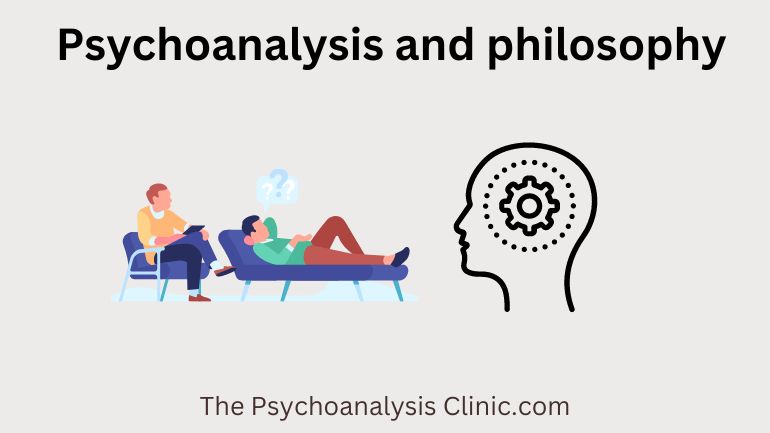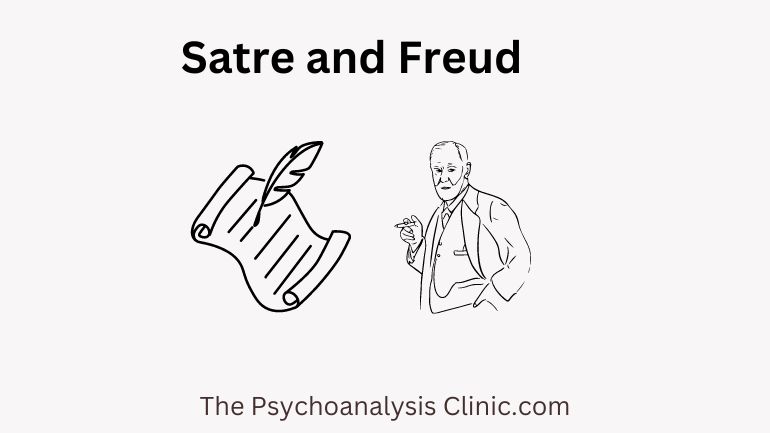Psychoanalysis and philosophy relationship

Psychoanalysis and philosophy are two areas of knowledge that are related in many ways.
Psychoanalysis, founded by Sigmund Freud, is a method for treating mental disorders and a theory that explains human behaviour, especially the role of the unconscious.
Philosophy, on the other hand, is a field of study that seeks to understand humankind and knowledge through rational analysis.
There are various ways of approaching the relationship between psychoanalysis and philosophy.
One is to analyse how the clinical practice of psychoanalysis fits into contemporary society and what the ethical and socio-political implications of this form of intervention are.
Another is to examine the theoretical relationships between psychoanalytic thinking and philosophy, which emphasises the limits and conflicts of human existence.
There are also many philosophers who have criticised or engaged in dialogue with psychoanalysis, such as Karl Popper, who considered it a pseudoscience, or the psychoanalyst Jacques Lacan, who reinterpreted it in the light of linguistics and logic.
Table of Contents
Philosophy of psychoanalysis
The philosophy of psychoanalysis is a field dedicated to study the foundations, concepts, implications and criticisms of the psychoanalytic theory of Sigmund Freud and his followers.
The philosophy of psychoanalysis seeks to understand what the unconscious is, how it relates to consciousness, how it influences human behaviour, how it can be accessed and interpreted, what the limits and possibilities of psyche healing are, among other questions.
The philosophy of psychoanalysis also dialogues with other areas of philosophy, such as ethics, politics, epistemology, metaphysics, among others, exploring the contributions and challenges that psychoanalysis brings to these fields of knowledge.
Freud philosophy
Sigmund Freud did not consider himself a philosopher, but rather a scientist who sought to understand the unconscious mental processes that influence human behaviour.
He studied aspects of the human personality that were not well explored by philosophy, such as the unconscious, sexuality and dreams. Philosophy had to revise its concepts of consciousness, the will and human thought after Freud.
Freud and Plato
Sigmund Freud was very familiar with the western classical philosophy. He used the ancient Greek mythology to name one of his theories, the Oedipus Complex.
Freud recognised Plato’s influence on his theory of sexuality when he quoted the myth of the androgyne in the essay Beyond the Pleasure Principle published in 1920.
In this myth, Plato tells us that human beings were originally double, with two sexes, but were separated by the gods and began to search for their lost half. Freud used this idea to explain the origin of the sexes and the search for the love object.
He was also influenced by Plato’s idea that there is a reality beyond appearances, which in psychoanalysis, is manifested by the opposition between truth and fantasy.
However, Freud also distanced himself from Plato in some respects. For example, he criticised the idea that reason should dominate bodily impulses, which for him were expressions of the drive for life.
Sigmund also questioned the idea that there is a single, objective truth, represented by Platonic ideas, and argued that reality is always mediated by subjective interpretation.
Satre and Freud

Sartre and Freud were two thinkers who influenced philosophy and psychoanalysis of the 20th century.
Jean-Paul Sartre disagreed with Freud with the concept of the unconscious. For Freud, the unconscious holds repressed desires and past traumas, which are censored by consciousness.
For Sartre, the unconscious is a form of bad faith, in other words, a lie that consciousness tells itself to escape its freedom and responsibility.
Sartre criticises the idea that the unconscious determines our actions and states that we are always free to choose our existential proposals.
The French philosopher opposed to the Freud’s idea that the unconscious escapes the control of reason and largely determines human behaviour, because as an existentialist, there is also the personal responsibility factor.
Existentialists defends the idea that everyone must assume their own freedom and act according to the values they choose, without being carried away by dogmas, conventions or excuses. This is a form of authenticity, which implies recognising one’s own existential condition and facing the challenges and dilemmas it presents.
What is existentialism?
Existentialism is a philosophical movement that focusses on analysing existence and how human beings exist in the world.
It seeks to find the meaning of life through unconditional freedom, choice and personal responsibility.
Existentialism emerged in the 19th century with thinkers such as Søren Kierkegaard and Friedrich Nietzsche and became popular in the 20th century with authors such as Jean-Paul Sartre, Albert Camus and Simone de Beauvoir.
What is Satre’s existentialism?

Sartre’s existentialism believes that human beings are free to choose their own way of living but are also responsible for the consequences of their choices.
Sartre’s existentialism also has ethical, political and aesthetic implications. He proposes an ethic of authenticity, which consists of assuming one’s own freedom and acting according to the values one chooses.
Jean Paul-Sartre was also committed to political causes such as socialism and decolonisation, defending the emancipation of the oppressed.



